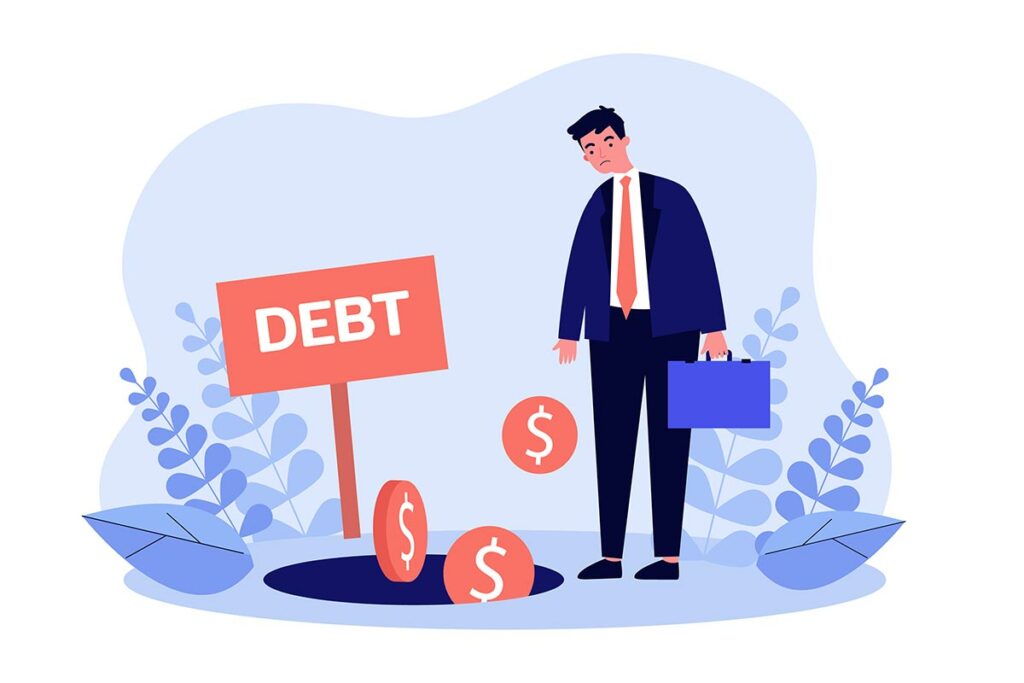When you take out a loan or credit card, you agree to pay back the debt plus interest and fees. If you don’t make your payments, the creditor has several options to get their money back. In this blog post we will discuss what creditors can do if you don’t pay your debt. We will cover wage garnishment, asset seizure, and more.

What Is A Creditor, And What Happens If You Don’t Pay Off Your Debt?
When you borrow money or buy something on credit, you become a debtor to the person or organization to whom you owe money. This person or organization is known as a creditor. If you don’t repay your debt according to the terms of your agreement, the creditor may take legal action against you to get their money back. There are a few different ways creditors can collect debts, including contacting you by phone and mail, which could eventually lead to wage garnishment.
Wage garnishment happens when the creditor gets a court order requiring your employer to withhold a particular portion of your paycheck and to send directly to the creditor. In some cases, creditors may also be able to seize assets such as your bank account balance or your car. If you’re struggling to pay your debts, it’s essential to understand your rights and options.
You may be able to negotiate with your creditors to lower your payments or set up a payment plan. You can also look into consumer credit counseling services or in some cases, talk to a bankruptcy lawyer to learn more about whether bankruptcy might be able to help you get out of debt. However, the best option is typically to first try to negotiate directly with your creditors.
If a creditor contacts you, it is recommended that you take action immediately. Ignoring the problem will not make it disappear, and in some cases could make the problem worse and ultimately lead to wage garnishment. If you’re struggling to pay your debts we recommend you explore consumer credit counselling services or if appropriate, contact a bankruptcy lawyer, to learn more about your options.
What Are The Consequences Of Not Paying Your Debt To A Creditor?
One of the consequences of not paying your debt is that the creditor can take legal action against you. This means they can sue you and, if they win, garnish your wages or put a lien on your property. In addition, not paying your debt can damage your credit score, making it difficult to get approved for loans or credit cards in the future. Credit scores are also often utilized by prospective employers and landlords.
Not paying your debt can also lead to persistent collection calls from debt collectors. If you’re struggling to pay your debts, reaching out to your creditors as soon as possible is essential to try to negotiate a payment plan. In some cases, they may be willing to work with you to avoid legal action.
If you believe debt collectors are not complying with applicable debt collection laws, you may consider filing a complaint with the Consumer Financial Protection Bureau.
How Can You Negotiate With Creditors To Come Up With A Payment Plan That Works For Both Parties Involved?
If you’re struggling to pay your debts, you should reach out to your creditors as soon as possible. In some cases, they may be willing to work with you to devise a payment plan that works for both parties involved.
There are some things you can do to prepare for your negotiations.
Know How Much You Can Afford To Pay Each Month
You should know how much you can afford to pay each month before you start negotiating with your creditors. This will help you understand what kind of payment plan you can realistically offer.
Gather Your Financial Documents
Before you start negotiations, gather your financial documents, including all of your monthly expenses and bills, so that you have a comprehensive understanding of your complete financial picture.
Your creditor may be willing to work with you to lower your interest rate, waive late fees, or set up a payment plan that works for both parties involved. If you’re struggling to pay your debts, reach out to your creditors today to see what options are available.
If You Have Already Been Contacted By A Creditor, What Should You Do Next To Avoid Any Legal Trouble Or Penalties Associated With Non-Payment Of Debt Owed?
If a creditor has contacted you, you should first reach out to them to try to negotiate a payment plan. Sometimes, the creditor may be willing to work with you to avoid legal action.
It’s vital to take action immediately and not ignore the problem. If you do nothing, the creditor may sue you or take other legal action against you. This could lead to wage garnishment, a lien on your property, or damage to your credit score.
Final Thoughts
If you’re struggling to pay your debts, you must reach out to your creditors as soon as possible. There may be options available that can help you get back on track. If a creditor has already contacted you, don’t ignore the problem. Take action right away to try to negotiate a payment plan. If you’re unsure what to do, consider looking into consumer credit counseling services or in some cases, contacting a bankruptcy lawyer to discuss your options.




